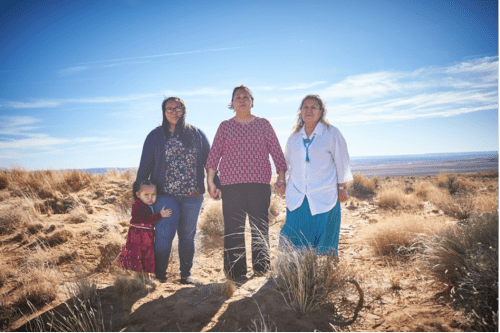
Understanding the burden of COVID-19 through surveillance and serosurveillance will help us learn more about the virus and identify approaches to reduce disease in Native American communities. Through surveillance and serosurveillance, we can monitor and learn who has active COVID-19 illness and who has COVID-19 antibodies, respectively. COVID-19 antibodies are developed from past COVID-19 infection or from COVID-19 vaccination and are the body’s way to protect against future infection. The Johns Hopkins Center for Indigenous Health (CIH) has multiple studies and projects to monitor COVID-19 disease and antibodies in Native American persons of all ages.
COVID-19 Surveillance in Native Americans study (COVID-SuNA)
This study builds off an existing platform that monitors for respiratory syncytial virus (or RSV) disease in Native American children under 5 years of age and pregnant women (RSV-SuNA study). This study has expanded to include individuals of all ages who have had a SARS-CoV-2 test. The study has also expanded to understand how well the COVID-19 vaccine protects against COVID-19 infection and hospitalization, the long-term health impacts of COVID-19 infection, and how COVID-19 is spread within households. People who consent to be in the study will have a swab collected from their nose, a blood sample collected, answer a questionnaire, and have their medical chart reviewed. The swab will be tested for respiratory germs, including SARS-CoV-2 and RSV, the blood sample will be tested for COVID-19 antibodies, the questionnaire will help understand which risk factors for COVID-19 are present, and the chart review will assess underlying conditions that lead to a higher risk of COVID-19. No genetic testing on participant DNA will be done. The study will take place on Navajo Nation, White Mountain Apache Tribal lands, and in Alaska. Results of this study can be used by the Tribes to understand the burden of COVID-19 and to help identify prevention and mitigation strategies
COVID-19 Antibody Surveillance
In collaboration with the Indian Health Service and the White Mountain Apache Tribe, CIH is conducting two seroprevalence surveys in the general population and among essential health workers to estimate the level of protection from SARS-CoV-2 on White Mountain Apache lands. This information is critical to inform decisions about prevention and control strategies in the response to COVID-19.
The cross-sectional community seroprevalence survey is being conducted in a random sample of the general population in communities on the White Mountain Apache Tribal lands. A random sample of up to 500 participants will be enrolled over 3 to 4 months. Other individuals in the household will also be eligible to participate. Participants will provide informed consent, answer a questionnaire, and have a blood sample collected. The blood sample will be tested immediately for SARS-CoV-2 antibodies and the results will be provided to the participant. The survey will be repeated with a new random sample of 500 participants 3 to 6 months later.
The longitudinal survey of essential health workers is being conducted among employees at the Indian Health Service Whiteriver Service Unit. Up to 200 participants will be enrolled after providing informed consent and followed for a year. Participants will have five study visits, 3 months apart. At each visit, participants will answer a questionnaire and provide a blood sample testing for the presence of COVID-19 antibodies using a rapid test with results provided to the participant.